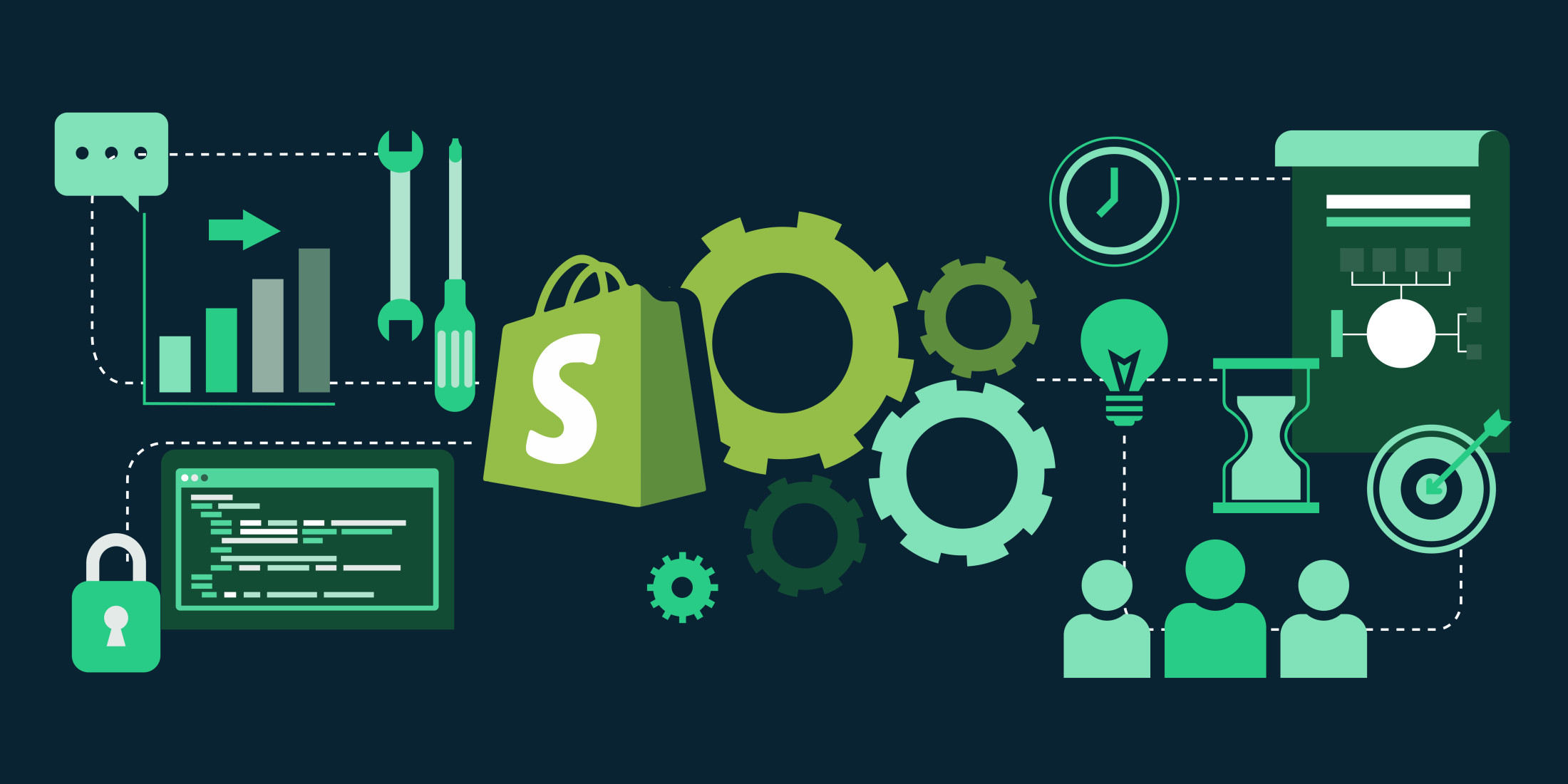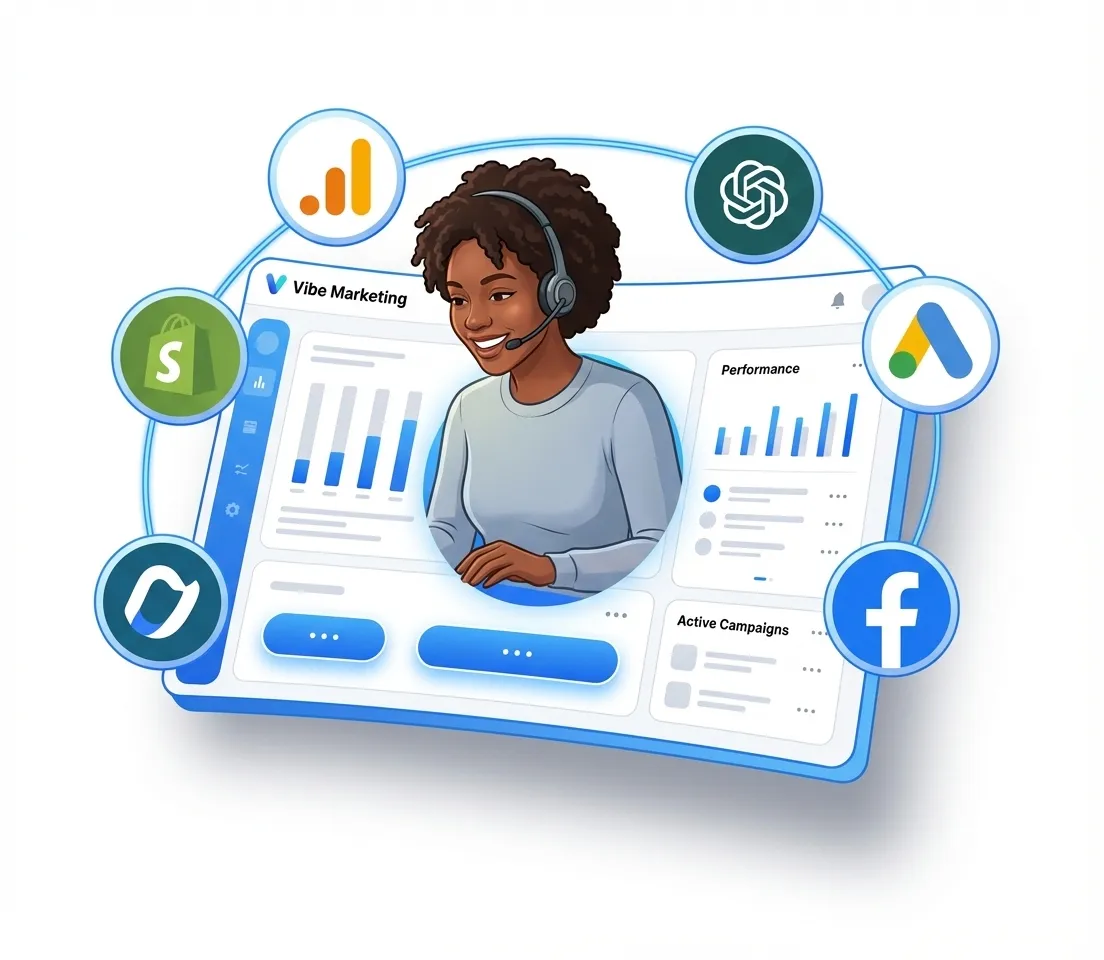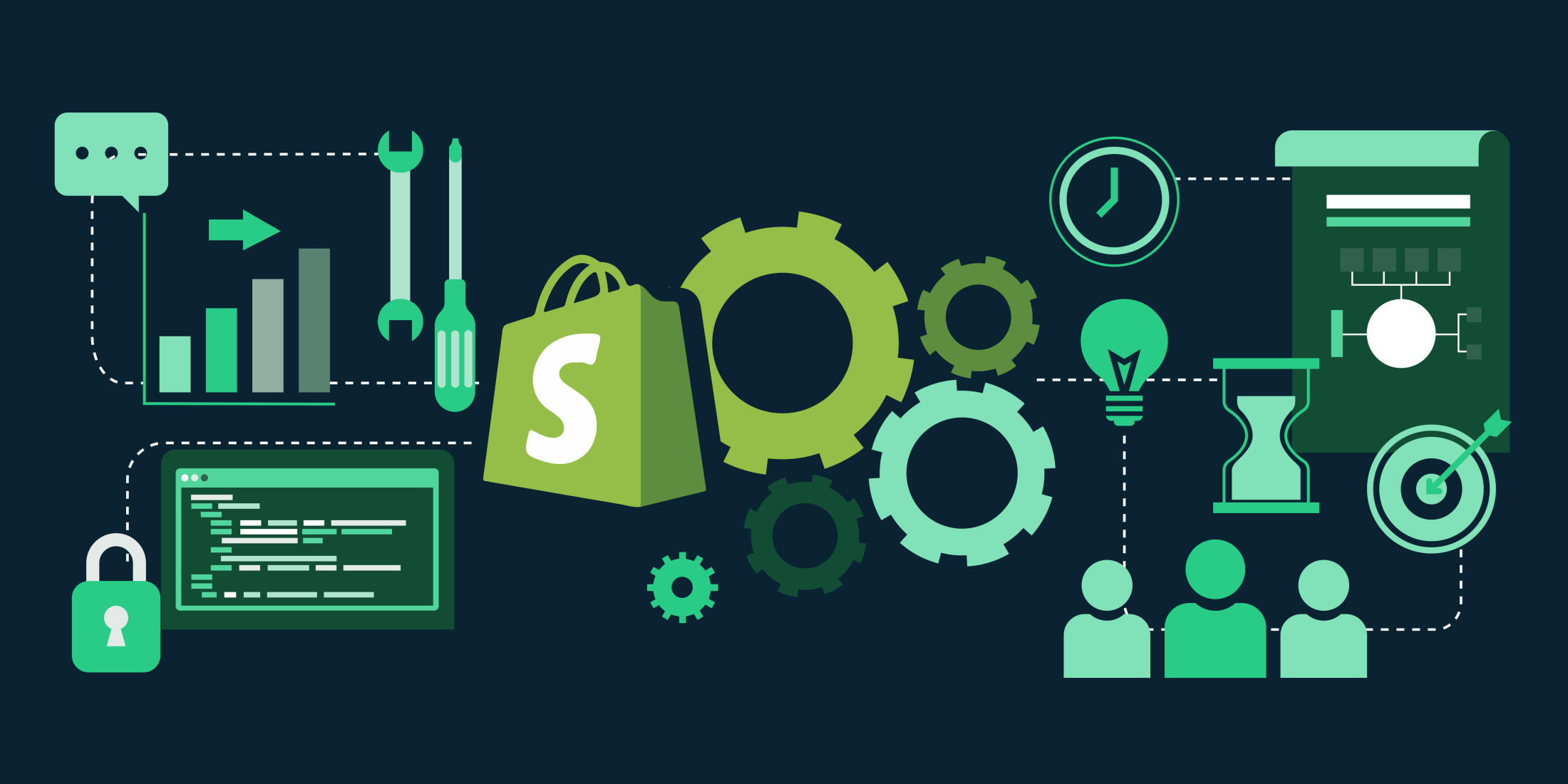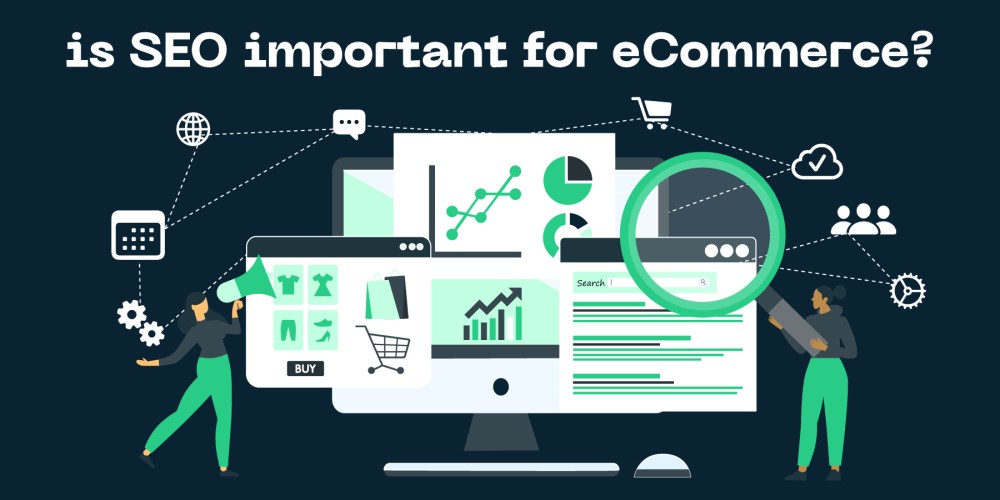How AI Can Improve Your Google Analytics Reports

Key Takeaways
- Discover how AI can enhance your Google Analytics reports, making them more accurate and insightful.
- Learn about AI-powered tools that clean data and provide predictive analytics to improve your eCommerce strategy.
- Find out how AI helps better segment customers and target them based on their behavior, boosting engagement.
- Explore AI solutions that optimize your conversion rates through advanced analysis and A/B testing support.
- Integrate AI with Google Analytics to automate your data analysis and gain actionable insights effortlessly.
- ConvertMate provides AI-driven solutions to boost your Google Analytics insights, helping eCommerce brands optimize marketing strategies. Check them out here.
Understanding AI’s Role in Google Analytics
Defining AI in Analytics
Understanding AI's role in Google Analytics is crucial for ecommerce store owners and marketers aiming to boost their conversion rates. Artificial Intelligence has transformed how data is processed and interpreted, making it easier for businesses to make informed decisions. By leveraging AI, Google Analytics can not only gather vast amounts of data but also analyze patterns and trends that would otherwise remain hidden. This capability allows for more accurate forecasting and strategic planning, enabling businesses to tailor their marketing efforts to better meet customer needs.
AI enhances Google Analytics by introducing features such as predictive analytics and automated insights. These tools help marketers identify potential opportunities and threats without having to sift through overwhelming amounts of raw data manually. For instance, AI can detect an unexplained drop in website traffic or a surge in cart abandonment rates, prompting timely interventions that could salvage potential sales. Such insights are invaluable for ecommerce businesses, as they allow for real-time adjustments to marketing strategies, ultimately leading to higher conversion rates.
Moreover, AI can personalize the user experience by analyzing customer behavior and preferences. This enables ecommerce store owners to present more relevant product recommendations and targeted promotions, thereby increasing the likelihood of conversions. By understanding the nuances of AI in Google Analytics, marketers and business owners can harness these advanced technologies to not only interpret data more efficiently but also to create more engaging and effective customer interactions. As AI continues to evolve, its integration into analytics will likely become indispensable for those looking to maintain a competitive edge in the digital marketplace.
Importance of AI for eCommerce
Artificial Intelligence has rapidly become an indispensable tool in the world of eCommerce, significantly enhancing the capabilities of platforms like Google Analytics. For store owners and marketers keen on boosting conversion rates, AI can provide unparalleled insights into customer behavior, preferences, and patterns. By processing vast amounts of data far beyond human capabilities, AI identifies trends and anomalies that might otherwise go unnoticed. This equips businesses with the knowledge to make informed decisions, optimize marketing strategies, and ultimately drive sales. The nuanced understanding that AI offers ensures that eCommerce operations are not only more efficient but also more attuned to the needs and desires of customers, leading to a more personalized shopping experience.
One of the most significant advantages of integrating AI into Google Analytics is its ability to predict future trends based on historical data. By analyzing past consumer actions, AI can forecast future buying behaviors, enabling eCommerce store owners to tailor their inventory and marketing efforts accordingly. This predictive capability is particularly useful during peak shopping seasons, where understanding customer intent can mean the difference between merely maintaining and substantially increasing conversion rates. Furthermore, AI can automate complex processes, such as A/B testing and customer segmentation, allowing marketers to focus on crafting creative strategies rather than getting bogged down by data management.
Additionally, AI enhances the accuracy of Google Analytics reports by reducing the margin of human error and providing real-time insights. For marketers, this means a more precise understanding of which campaigns resonate with their audience and which need adjustment. With AI-powered analytics, eCommerce businesses can also better understand the user journey, pinpointing exactly where potential customers drop off and implementing targeted strategies to re-engage them. In a competitive online market, leveraging AI to refine analytics not only improves conversion rates but also strengthens customer loyalty by ensuring a seamless and satisfying shopping experience.
Enhancing Data Accuracy with AI
AI-Powered Data Cleaning
In today’s data-driven world, ecommerce store owners and marketers are constantly flooded with vast amounts of data, making it crucial to ensure that the data being analyzed is accurate and relevant. This is where AI-powered data cleaning comes into play as an essential tool for enhancing data accuracy. By leveraging artificial intelligence, businesses can automatically detect and correct errors, inconsistencies, and duplicates in their datasets. This not only saves valuable time and resources but also fosters greater confidence in the insights derived from tools like Google Analytics.
AI’s ability to process and analyze data at scale allows it to identify patterns and anomalies that would be challenging for manual processes. For an ecommerce store, this means that AI can spot trends and behaviors that are critical for improving conversion rates, such as identifying incorrectly tracked transactions or discrepancies in user behavior data. By ensuring the integrity of your data, AI-powered data cleaning enables more accurate reporting and decision-making, providing a clearer picture of customer journeys and interactions, and ultimately leading to more effective marketing strategies.
Moreover, AI-driven data cleaning can adapt and learn over time, continuously improving its effectiveness. As it encounters more datasets, it becomes better at predicting and correcting errors, which makes it an invaluable asset for businesses looking to refine their analytics processes. For marketers and store owners, this adaptability means that their data quality processes are future-proofed, allowing them to focus on strategic initiatives rather than getting bogged down by data discrepancies. By ensuring the accuracy and reliability of your Google Analytics reports through AI, you can optimize your ecommerce strategies to drive higher conversion rates and achieve sustained growth.
Predictive Analytics for Reporting
In the realm of ecommerce, data accuracy is more critical than ever, and leveraging AI-powered predictive analytics can be a game-changer for businesses striving to optimize their Google Analytics reports. By integrating AI, store owners and marketers can transform heaps of raw data into actionable insights, ultimately enhancing the accuracy and effectiveness of their reporting. Predictive analytics utilizes machine learning algorithms to identify patterns and trends within your data, allowing you to anticipate future outcomes with a higher degree of confidence. This technological advancement provides a clearer picture of customer behavior, enabling ecommerce businesses to tailor their strategies more precisely and improve conversion rates.
One of the most significant benefits of using AI for predictive analytics is its ability to adjust and refine data in real-time. Traditional analytics often suffer from inaccuracies due to static data collection methods and human error. In contrast, AI technology continuously learns and adapts, ensuring that the data you rely on is as accurate and up-to-date as possible. This dynamic approach means ecommerce store owners can make informed decisions based on the latest trends and changes in consumer behavior, ultimately supporting more effective marketing strategies and customer engagement.
Moreover, AI-driven predictive analytics can uncover hidden patterns that might be overlooked by the human eye. For ecommerce marketers focused on increasing conversion rates, this means identifying which marketing channels are truly driving sales, understanding customer pain points, and optimizing the user experience across their online platforms. By providing deeper insights into customer preferences and behaviors, AI enhances overall data accuracy, leading to more targeted and personalized marketing efforts. This precision not only boosts conversion rates but also fosters customer loyalty by delivering a more satisfying shopping experience.
Improving User Segmentation
AI-Driven Customer Insights
AI-driven customer insights are revolutionizing how e-commerce businesses approach user segmentation. By leveraging artificial intelligence, store owners and marketers can delve deeper into customer data to uncover patterns that traditional analytics might miss. This enhanced capability allows businesses to create more precise and effective marketing strategies that resonate with their target audience. AI can process vast amounts of data much faster than manual methods, identifying nuanced consumer behaviors and preferences. As a result, marketers can move beyond basic demographic segmentation and start considering factors such as browsing habits, purchase history, and even real-time engagement metrics. This deeper understanding of customer segments can lead to personalized marketing efforts, which are crucial for increasing conversion rates.
One significant advantage of AI in user segmentation is its ability to continuously learn and adapt. Traditional methods often require periodic updates and manual intervention to stay relevant. In contrast, AI-driven systems can autonomously refine user segments as they process new data, ensuring that marketing strategies remain aligned with evolving consumer trends. This dynamic approach enables e-commerce businesses to remain agile, quickly responding to shifts in customer behavior or market conditions. By allowing AI to handle the heavy lifting of data analysis, marketers can focus on crafting compelling messages and experiences tailored to each segment, increasing the likelihood of converting prospects into loyal customers.
Moreover, AI-driven insights can help uncover hidden opportunities and challenges that might go unnoticed with conventional analytics. For instance, AI can identify micro-segments within your audience that have high conversion potential but are currently under-targeted. By recognizing these segments, marketers can allocate resources more efficiently, optimizing their campaigns for better ROI. Additionally, AI can pinpoint friction points in the customer journey, enabling businesses to address these issues and streamline the path to purchase. By integrating AI into your Google Analytics reports, you equip your business with a powerful tool that not only enhances user segmentation but also drives strategic decision-making, ultimately boosting your store's performance and conversion rates.
Behavioral Targeting with AI
In the rapidly evolving world of e-commerce, understanding customer behavior is crucial for success. This is where behavioral targeting with AI becomes a game-changer in improving user segmentation. By leveraging AI technologies, businesses can analyze vast amounts of data to predict and influence customer behavior more accurately than ever before. AI enables e-commerce store owners and marketers to go beyond traditional segmentation methods, which often rely on basic demographic information. Instead, AI can incorporate nuanced data such as browsing habits, purchase history, and real-time interactions to segment users into highly specific groups. This level of precision allows for more personalized marketing strategies, ultimately driving higher conversion rates.
AI-driven behavioral targeting also facilitates dynamic user segmentation, which means segments can be continually refined and adjusted in real-time based on the latest data. This adaptability ensures that marketing efforts are always aligned with current consumer trends and preferences. For instance, if a particular user group shows a sudden interest in a new product category, AI can detect this shift and adjust marketing messages accordingly. Such responsiveness is invaluable for e-commerce businesses striving to maintain a competitive edge, as it helps to capture potential sales opportunities that might otherwise be missed.
Moreover, AI can help uncover hidden patterns within customer data that might not be immediately obvious through manual analysis. These insights can lead to the identification of new customer segments or emerging trends that present opportunities for growth. For example, AI might reveal that a specific segment of users is more likely to convert during a particular time of day or in response to a certain type of promotion. By incorporating these insights into your Google Analytics reports, you can develop more effective marketing campaigns that resonate with your audience and increase your conversion rate. In conclusion, AI-enhanced behavioral targeting is not just a tool for improving user segmentation; it is a strategic advantage that can significantly elevate the performance of your e-commerce business.
Optimizing Conversion Rates
AI Tools for Conversion Analysis
In the fast-paced world of ecommerce, optimizing conversion rates is crucial for success. AI tools have emerged as powerful allies in this endeavor, offering insights that go beyond traditional analytics. These tools can process vast amounts of data and identify patterns that might be invisible to the human eye. By leveraging AI, ecommerce store owners and marketers can gain a deeper understanding of customer behavior and make data-driven decisions to enhance their Google Analytics reports.
AI tools for conversion analysis employ machine learning algorithms to sift through customer interactions, identifying key drivers and barriers to converting visits into sales. These tools can automate the segmentation of your audience, enabling personalized marketing strategies that resonate more effectively with different customer groups. By understanding which elements of your website contribute most to conversions, AI can guide you in crafting a more effective user experience, from tweaking landing pages to optimizing checkout processes.
Moreover, AI can help predict future trends by analyzing historical data, allowing ecommerce businesses to stay ahead of the curve. For instance, it can reveal which products are likely to surge in popularity, enabling timely inventory adjustments. With AI-enhanced Google Analytics reports, marketers can experiment with different strategies, test various elements, and continuously refine their approach. This dynamic, informed strategy not only improves conversion rates but also fosters a more agile and responsive business model, capable of adapting to an ever-changing market landscape.
A/B Testing with AI Support
In the realm of ecommerce, where every click and interaction counts, optimizing conversion rates has become a critical focus for store owners and marketers alike. A/B testing has long been a staple in this optimization toolkit, allowing businesses to experiment with different variables on their websites to see what variations lead to higher conversions. However, integrating AI into this process can significantly enhance the insights gained from A/B testing, leading to more informed decisions and better outcomes. By leveraging AI’s capacity to analyze vast amounts of data quickly and accurately, ecommerce businesses can take their Google Analytics reports to the next level, uncovering patterns and insights that might otherwise remain hidden.
AI can streamline the A/B testing process by identifying the most promising variations faster than traditional methods. Instead of running numerous tests on various elements one by one, AI algorithms can predict which changes are most likely to impact conversion rates positively. This predictive capability not only saves time but also accelerates the rate at which businesses can implement effective strategies. Moreover, AI-driven analytics offer deeper insights into customer behavior by segmenting audiences and tailoring experiments to specific user groups. This targeted approach ensures that A/B testing is not only more efficient but also more relevant, leading to enhanced user experiences and, ultimately, improved conversion rates.
For ecommerce store owners and marketers, the integration of AI into A/B testing represents a powerful shift towards more data-driven decision-making. By improving the depth and accuracy of Google Analytics reports, AI empowers businesses to make informed choices that directly influence their bottom line. The ability to quickly adapt to customer preferences and market trends gives ecommerce stores a competitive edge, enabling them to not just meet customer expectations but to exceed them. As AI continues to evolve, its role in optimizing conversion rates will only become more pronounced, offering valuable opportunities for growth and innovation in the ecommerce space.
Integrating AI with Google Analytics
Setting Up AI Integrations
Integrating AI with Google Analytics can be a game-changer for ecommerce store owners and marketers who are keen on enhancing their conversion rates. By leveraging AI, businesses can gain deeper insights into customer behaviors, preferences, and purchasing patterns. This integration allows for more accurate predictive analytics, enabling marketers to anticipate future trends and make data-driven decisions. With AI, you can automate data analysis, identify anomalies, and even forecast sales with improved accuracy. As a result, you can focus on strategic initiatives rather than getting bogged down by manual data crunching.
One of the significant advantages of incorporating AI into Google Analytics is the ability to personalize user experiences based on real-time data. AI can dynamically segment your audience, allowing you to tailor content and marketing strategies more effectively. For an ecommerce store, this means serving personalized product recommendations, customized promotions, and targeted content that resonate with individual users. Such personalization can lead to increased customer engagement, higher conversion rates, and ultimately, improved revenue figures. By understanding your audience on a granular level, you can refine your marketing strategies to align perfectly with your customers' needs and preferences.
Moreover, AI integration can help streamline reporting processes, making it easier for marketers to extract meaningful insights without the hassle of sifting through mountains of data. Google Analytics, powered by AI, can generate insightful reports that highlight key performance indicators and metrics that matter most to your business. This level of automation not only saves time but also reduces the likelihood of human error in data analysis. Consequently, ecommerce store owners can make quicker, more informed decisions to optimize their marketing efforts and improve overall business performance. Embracing AI in this context is not just about staying ahead of the competition; it’s about redefining how you understand and engage with your audience in a rapidly evolving digital landscape.
Leveraging AI for Actionable Insights
Integrating AI with Google Analytics is rapidly becoming a game-changer for ecommerce store owners and marketers who are looking to extract actionable insights and enhance their decision-making processes. Artificial intelligence can process vast amounts of data far more quickly and accurately than traditional methods. By leveraging AI, you can identify patterns and trends that might be easily missed by the human eye, leading to more informed strategies and better-targeted marketing efforts. For those aiming to increase conversion rates, AI can assist in not only understanding what your customers are doing on your site but also predicting what they might do next, allowing you to tailor your approaches to meet these anticipated needs.
One of the standout benefits of integrating AI with Google Analytics is the ability to automate the analysis of your website’s traffic data. This means that instead of spending countless hours sifting through data reports, AI tools can provide you with concise, actionable insights. For instance, AI can segment your audience in real-time, identify high-performing keywords, and even pinpoint areas of your website that are underperforming. This automated segmentation and analysis can help ecommerce businesses to refine their targeting efforts, optimize ad spend, and ultimately drive more conversions by delivering the right message to the right audience at the right time.
Moreover, AI-enhanced Google Analytics can personalize user experiences in ways that were previously unimaginable. By using machine learning algorithms, AI can track user behavior and preferences, allowing you to create personalized marketing campaigns that resonate on a deeper level with your audience. Imagine being able to offer personalized product recommendations or tailored promotions that align perfectly with each customer’s past interactions and preferences. This level of personalization not only helps in boosting customer satisfaction but also significantly increases the likelihood of conversions, turning casual browsers into loyal customers. As the ecommerce landscape becomes increasingly competitive, leveraging AI for actionable insights is not just an advantage but a necessity for staying ahead.
FAQS
How can AI improve the accuracy of my Google Analytics data?
AI can enhance the accuracy of your Google Analytics data by identifying and correcting anomalies or errors in data collection. It uses machine learning algorithms to detect patterns that may indicate issues with data tracking or user behavior anomalies, ensuring that your analytics reports reflect true user engagement and behavior.
What specific AI features does ConvertMate offer to enhance Google Analytics reports?
ConvertMate provides AI-driven insights that automatically highlight key metrics and trends that matter most for your business. By integrating with your existing analytics tools, ConvertMate offers predictive analytics, anomaly detection, and automated reporting to help you make data-driven decisions more efficiently.
Can AI help in segmenting audiences in Google Analytics?
Yes, AI can greatly enhance audience segmentation by analyzing vast amounts of user data to identify distinct patterns and behaviors. This allows for the creation of highly-targeted audience segments, which can improve the precision of your marketing strategies and campaign effectiveness.
How does AI simplify the reporting process in Google Analytics?
AI automates the reporting process by generating dynamic, real-time reports that provide actionable insights without manual data crunching. This reduces the time and effort required to compile and interpret data, enabling quicker decision-making based on fresh, relevant insights.
Is it possible to use AI to predict future trends using Google Analytics data?
Absolutely. AI can analyze historical data from Google Analytics to predict future trends and outcomes. By using predictive analytics, AI models can forecast user behavior, helping businesses to anticipate demand, optimize inventory, and tailor marketing efforts to changing trends.
How does AI enhance the visualization of data in Google Analytics?
AI enhances data visualization by automatically generating intuitive, easy-to-understand graphs and charts that highlight key insights and trends. These visualizations make complex data accessible, allowing users to quickly grasp important information and make informed decisions.
Can ConvertMate help in integrating AI with my existing Google Analytics setup?
Yes, ConvertMate offers seamless integration of AI capabilities with your existing Google Analytics setup. Our platform ensures that your analytics tools are enhanced with AI-driven insights, enabling you to maximize your data's potential and improve your overall digital marketing strategy.



